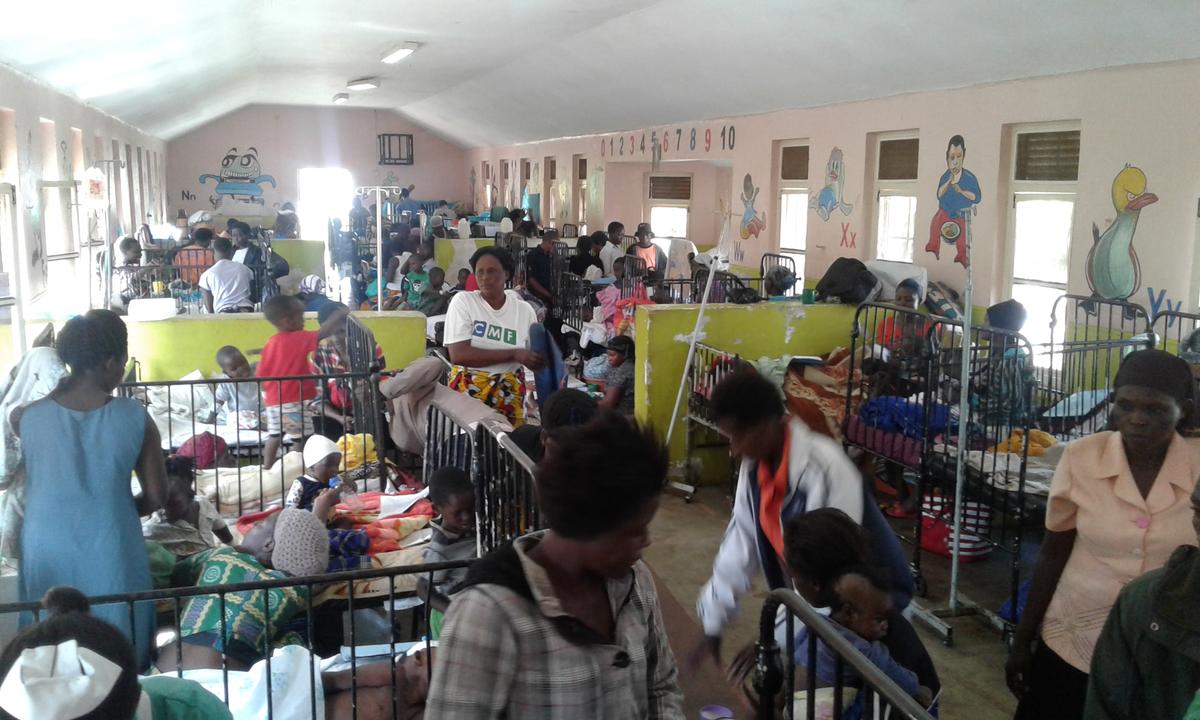
Researchers, led by LSTM's Professor Feiko ter Kuile, have published in the New England Journal of Medicine details of a trial investigating whether malaria chemoprevention could reduce morbidity and mortality post-discharge in children following in-hospital treatment for severe anaemia.
Severe anaemia contributes substantially to child mortality and is a leading cause of hospital admissions in malaria-endemic Africa. However, most research on severe anaemia in Africa has focused on improving in-hospital care. Yet in areas with intense malaria transmission, a substantial, potentially preventable component of the burden occurs in the first few months post-discharge, with higher mortality than during the in-hospital period. A multi-centre, two-arm, randomized, placebo-controlled trial in nine hospitals across Kenya and Uganda was conducted to determine if three months of malaria chemoprevention taken at home could reduce morbidity and mortality during the post-discharge period in children who had been discharged after having recently been admitted for severe anaemia. The results showed that children who were randomized to the chemoprevention arm were 70% less likely to die or be re-admitted than children who received the standard of care.
Professor Feiko ter Kuile commented: “This study confirms that young children who survive the initial hospitalisation remain at very high risk of dying at home or having to be readmitted within the first 3 months after discharge. We suspected that repeated malaria infection played a major role in preventing a full recovery when these children would go back home, but the magnitude of the beneficial effect of these short courses of malaria prophylaxis was beyond our expectations. It illustrates the devastating impact repeated, often asymptomatic malaria infections can have in these vulnerable children and how relatively simple interventions could make a major difference. These results are exciting and it suggests that strategies, such as this, that reduce the risk in this post-discharge period may offer substantial public health gains. Further research is now needed how best to implement these ‘post-discharge’ interventions”.
The work is encouraging and suggests that in areas with intense malaria transmission, three months of malaria chemoprevention in transfused children discharged from hospital after treatment for severe anaemia results in substantial benefits in reducing morbidity and mortality post-discharge.
This study was made possible through collaborations with our partners at the Centre for Global Health Research, Kenya Medical Research Institute (KEMRI), and the Kisumu County Department of Health, Kenya Ministry of Health, Kisumu, Kenya; Makerere University College of Health Sciences, Kampala, Uganda; the Department of Biostatistics, University of Liverpool, UK; Division of Parasitic Diseases and Malaria, Center for Global Health, Centers for Disease Control and Prevention, Kisumu, Kenya and Atlanta, GA, USA; Emma Children’s Hospital, Academic Medical Centre, University of Amsterdam, Netherlands; the Ryan White Center for Pediatric Infectious Disease and Global Health, Indiana University School of Medicine, Indianapolis, USA; the Section for Ethics and Health Economics and the Centre for International Health, Department of Global Public Health and Primary Care, University of Bergen, Norway; and the School of Public Health and Family Medicine, College of Medicine, University of Malawi, Malawi.

This work was supported by the Research Council of Norway through the Global Health and Vaccination Research (GLOBVAC) programme, and is coordinated by the University of Bergen. GLOBVAC is part of the European & Developing Countries Clinical Trials Partnership (EDCTP2) programme supported by the European Union.
Malaria Chemoprevention in the Postdischarge Management of Severe Anemia
December 3, 2020
N Engl J Med 2020; 383:2242-2254
DOI: 10.1056/NEJMoa2002820